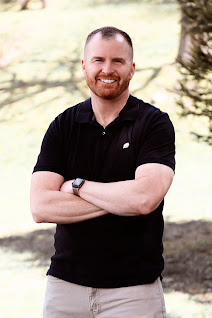As we close out what was frankly an annus horribilis for everyone, naturally including anyone in education or health care, I'd like to do so as positively as possible and share some lessons learned. This might be two posts or one, or six or twelve, I am really not sure. It's a topic I thought of submitting for an ASHA presentation but really didn't have the energy (I submitted a different topic), so here goes.
The beginning of the pandemic was a fear-fueled spring into action: figuring out how to become an actual telepractioner instead of a tech-informed consultant, and then sharing that information in post after post and not a few presentations. Then we settled into the long day-to-day post-fall and that energy...lagged. The days got shorter and my SAD closed in, bringing with it a lot of irrational dread that was tinged with actual threat. My husband returned to teaching HS Math (mostly AP) in an impossibly hybrid fashion, working 12 hour days to figure this out for some engaged and many indifferent students, all of whom were probably doing their best to get through this. Meanwhile, I settled into continuing teletherapy, feeling trapped in our house and isolated, except for the blessed days I got to leave and go do some in-person work at schools. Nevertheless, we both carried UVC lamps to sanitize our computers and stripped our school clothes into a dedicated hamper in our back hallway.
Things got better. Vaccinations brought hope, mine coming undeservedly early in my case, due to my SLP license. I cheered on as my parents, my husband, family members, friend by friend (I kept track of who was on what shot mentally), then my students got their protection. Still, I languished through the late winter and spring and just now am REALLY able to see and enjoy the light, and I'm looking forward to the future.
 |
| Having started to experiment with coloring and drawing, I'm seeing the light- and am a work in progress. |
I didn't get COVID. My husband didn't get COVID. I think, anyway. I certainly got tested enough. The few people I know who did had mostly manageable cases. Lucky. I kept working, another blessing; I know it's a privilege to be able to work from home. Still. It sucked, didn't it?
I'm working to put the year behind me (self talk: let go and move on) but I know I can focus on the things I learned, and share them. So let's start with mental health. It's important, and something like this can break it a little, and you can piece it back together. Some tech tools that helped me:
1. Therapists need therapists. Get help if you need it. I had my own experience with telehealth re-upping with a therapist who had helped me in the past. Doxy.me works great! In all probability, help will be more available to all in the future given the doors opened and competencies developed during this tough time.
2. Tech-based fitness tracking facilitates exercise and mental health; the pulse goes up and so do the levels of good chemicals in your brain. Luckily, using exercise as a tool was always an inclination of mine. I enjoy it. Even without a gym to go to, I managed to keep that up, being creative about workouts and learning how to use exercise bands, which, now back to the gym regularly and comfortable maskless, I still use on some days as an alternative. I actually lost weight during COVID. I thank my Apple Watch, which I finally caved and ordered last August. The rings are a thing:
3. Tech-mediated mindfulness, breathing and coaching: Always a fan of tools like Calm, most recently I tried out Breethe, Aura and Breathwk. I ended up going with a yearly subscription to Aura because of the combination of high-quality meditations along with CBT and coaching tracks. The CBT pieces have even given me great ideas for lessons with my students, as these concepts relate so much to narrative language, social cognition and self-regulation.
ABCDE (Antecedent Event, Beliefs, Consequence, Dispute, Effect) pretty much mirrors story grammar models.
I also have found Sanvello useful- this app has instructional paths and meditation tracks among other features, and is available for free with some health insurance plans.
Further caving and getting AirPods has made me full-on Apple and has somehow made developing the habit of meditation more attractive. Having the voice in my head be music has also been a nice substitute at times. I should give a shout out to our network of Echo Dots about the house that has cut through the unsettling quiet, though I have listened to way too much SiriusXM The Blend (aka The Bland, aka Adele At All Times).
Breathwk is super cool and SLPs should definitely know about it, given our connection to respiration and a number of its uses (e.g. voice, fluency, self-regulation). The app presents different breathing techniques based in science, a training sequence, and all presented with great visuals and haptics (e.g. a vibration for inhalation). You can get a lot out of this app with its free options but I may spring for the annual as I am very curious to learn more.
The above have all been great tools in helping me step forward back into "normalcy," and I hope these tips help you and yours in some way!








Thank you for sharing this blog . It’s really helpful for me. find about more info here Health Express Coupon Codes and many services
ReplyDeleteWhen I was going through a divorce https://cheap-divorce-online.com/michigan/, I was offered a job as a cybersecurity engineer in another state.
ReplyDeleteFortunately, the father of my children reluctantly agreed to the move.
I had to pretend it was his idea. Only one of us kept up with visits... and even before the move, the kids stayed with me.
Would it be wrong of me to demand change without his knowledge?
Undoubtedly, the COVID pandemic presented difficulties, particularly for extrovert SLPs who thrive on interpersonal contacts. This essay gives a comprehensive insight on the process of adaptation, highlighting the professionalism of workers in the face of unusual circumstances. It's evidence of how the human spirit can develop, learn, and look for the positive side of even the most hard situations. We may negotiate the post-pandemic world with the help of the shared experiences and lessons, which will undoubtedly connect with many people.
ReplyDelete1.카지노사이트 추천,카지노사이트 검증,카지노사이트 주소,카지노사이트 순위,
ReplyDelete슬롯사이트 추천,슬롯사이트 검증,슬롯사이트 순위,슬롯사이트 주소
https://www.geogebra.org/m/xjkn69fv
https://www.geogebra.org/m/kd28zkyf
https://start.me/p/wMno27
https://start.me/p/p1g5aG
Thats great article.Its informative and useful information for us.Thanks for sharing this post.
ReplyDeleteSpeech Techie is a blog or platform focused on the latest advancements in speech technology and voice recognition. It covers topics such as artificial intelligence, speech-to-text systems, voice assistants, and natural language processing. The platform offers insights into how speech technologies are transforming industries like healthcare, customer service, and entertainment. It also provides reviews and analysis of speech-related products, tools, and software. Speech Techie serves as a resource for those interested in the intersection of technology and voice-driven solutions.
ReplyDeleteInvestment Fraud Lawyer
Mail Fraud Lawyer
ReplyDeleteLessons from COVID, Part 1: or, An Anxious Extrovert SLP Faces a Pandemic is a heartfelt and deeply relatable exploration of navigating unprecedented challenges. Through the lens of a speech-language pathologist, it reflects on the personal and professional growth sparked by the pandemic, offering a unique perspective on adaptability, resilience, and human connection.
abogado de bienes